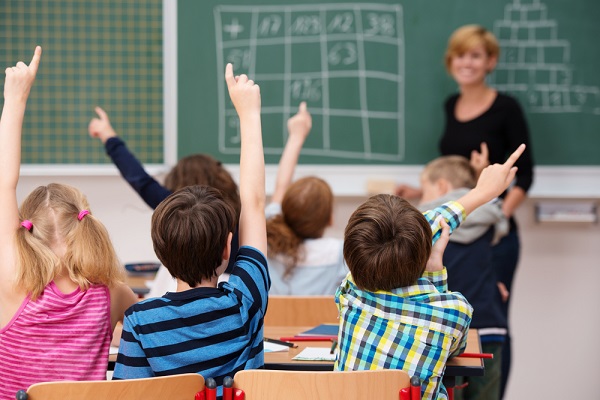
Luxembourg's Ministry of Education, Children and Youth has announced changes to the COVID-19-related health measures in place in schools.
Following the decision of the Government Council on Friday to adjust the health measures in force in order to stem the spread of COVID-19, the national education health provisions have been adapted accordingly.
“We take the current increase in COVID-19 cases in the population seriously. National Education intends to make its contribution to the common effort. Rapid self-tests in schools are an effective measure, particularly for the population who cannot yet be vaccinated”, explained Luxembourg's Minister of Education, Children and Youth, Claude Meisch.
Health measures in schools are currently based on the following elements: wearing a mask is compulsory from the first case of infection detected in a class; a strengthened testing system; putting into quarantine people who have not been vaccinated or have not recovered from the virus and who are not participating in the reinforced testing system.
In primary education (cycles 2, 3 and 4) and in skills centres, the basic testing system is increasing from two to three self-tests per week. Parents of children in cycle 1 will receive a third rapid self-test per week to be performed at home.
In secondary education, the system provides for two rapid antigen self-tests per week: one at school and one at home.
If one positive case is detected in a class, the school will implement reinforced daily testing for a period of seven days. This means that students who are neither vaccinated nor recovered participating in enhanced testing every 24 hours at school will not be put into quarantine. Vaccinated or recovered students are not placed in quarantined and can participate in enhanced testing. On the other hand, students who are neither vaccinated nor recovered and who do not agree to enhanced testing will be put into quarantine. Quarantine is lifted by means of a certified negative PCR test from the sixth day after their last contact with an infected individual (test carried out on prescription from the Inspectorate of Health).
If three positive cases are detected in a class, vaccinated or recovered students will not be placed in quarantine. Students who are neither vaccinated nor recovered will be put into quarantine. As above, quarantine is lifted by means of a certified negative PCR test from the sixth day after their last contact with an infected individual.
In cycle 1 of primary education, the health system in force remains applicable: pupils are not required to wear a mask; if an isolated case is detected in the classroom, the class in question will be separated from others in the school building; if two or more cases are detected in a class, the class will be put in quarantine without authorisation to leave.
In the coming day, the parents of students will receive a new certificate of consent to reinforced testing from the class teacher. As soon as the consent certificates are collected, the appropriate sanitary measures will be applied in the classroom.
Evolution of COVID-19 cases in schools
The Education Ministry noted that the opening of schools in September did not lead to an immediate increase in positive cases among school children. In recent weeks, however, a greater increase in infections has been noted among children under 12, i.e. those who have not yet been able to get vaccinated.
By studying the number of positive cases since the start of the school year, the Ministry reported that the number of cases in primary education currently exceeds that recorded during the same period last year. On the other hand, in secondary education, the number of cases is much lower than last year. This is explained by the vaccination rate of around 70% in the affected population.
Antigenic self-tests have been deemed an effective and important element in slowing down the spread of the virus in schools. During week 45 for example, 118 positive cases were detected via self-tests, which represents 40% of positive cases recored during the week in question.
In response to a parliamentary question, the Ministry of Education, Children and Youth and the Ministry of Health recalled the less serious nature of infection in children and young people: hospitalisation remains extremely rare and no death has occurred to date among this population.








